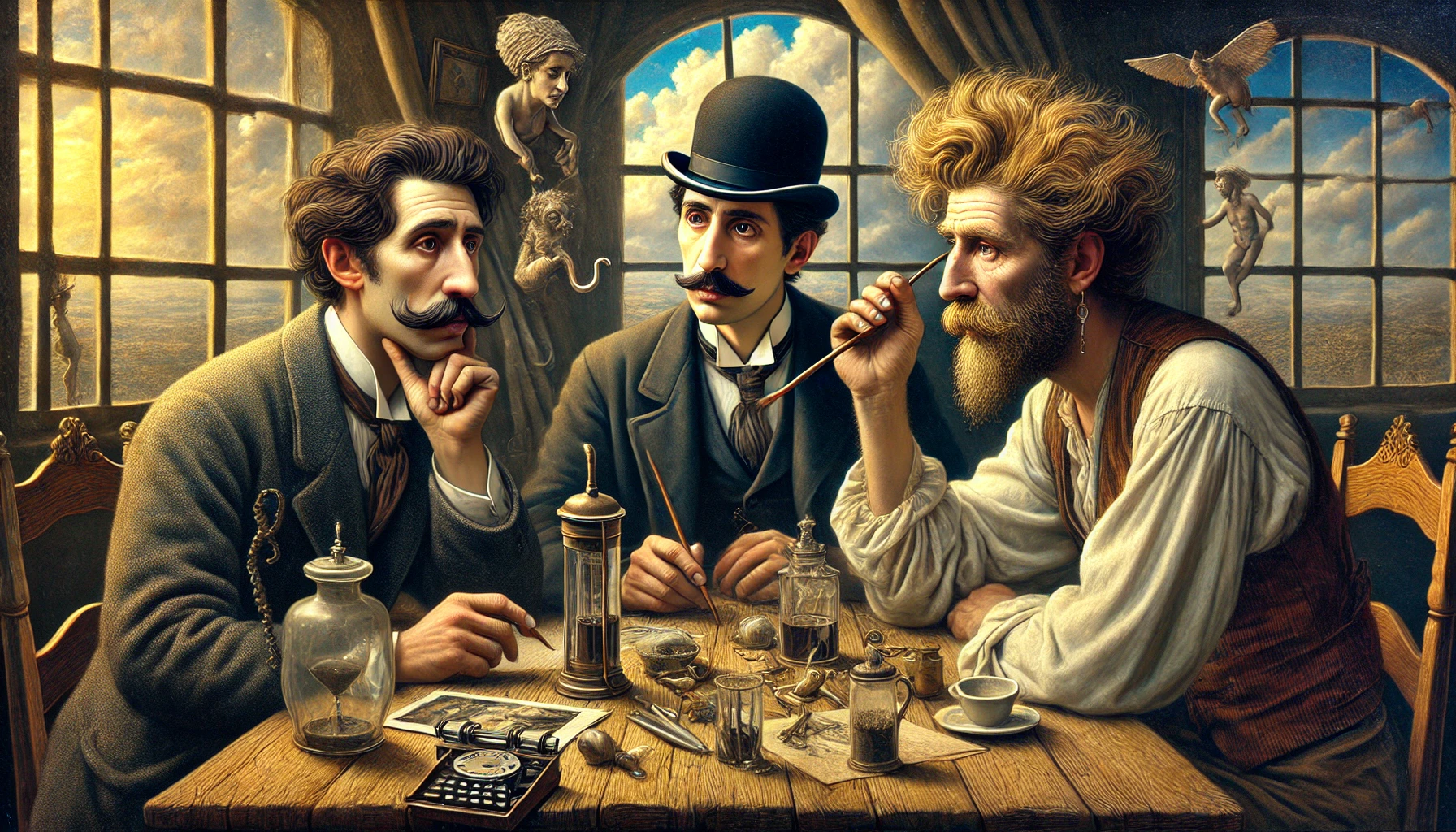Have you ever woken up from a dream feeling like you just left a concert? Maybe a catchy tune you heard earlier slipped into your nighttime adventures, or you sensed a rhythm playing in the background of your dream. It’s amazing how music shapes not just our waking hours, but also our inner dream world. If you’ve ever wondered why a favorite song lingers in your mind at night, or how certain melodies might affect your dreams, you’re in the right place.
Today, we’ll dive deep into the compelling connection between music and our dreams. We’ll explore the science, the psychology, and a few practical tips for harnessing the power of music to improve sleep and create more vivid dream experiences.
Music in Everyday Life: A Constant Companion
Music surrounds us. We hear it in morning radio shows, background tracks in films, grocery stores, and our personal playlists. We use it for motivation at the gym, to focus at work, and to unwind after a busy day. Our brains respond powerfully to music, and this response doesn’t stop when we fall asleep. Instead, those melodies can follow us into our dreams.
Why Our Brains Love Music
The human brain craves patterns. Music is a tapestry of rhythms, repeating sections, and structured melodies. When we listen to a song, many areas in our brain light up. These regions involve emotion, memory, and even motor control. Think about how your body moves when you dance, or how a certain song can spark a memory. This potent mental stimulus can persist when we close our eyes at night.
Music as an Emotional Trigger
Music sparks intense emotions. A sad song can make you tear up, while an upbeat tune might inspire you to tackle a challenging project. Dreams often reflect our emotional states. This means a haunting melody at bedtime might shape a dream’s dramatic tone. On the other hand, an uplifting track could lead to a brighter dreamscape.
Understanding Sleep Stages and Dream States
Before we see how music seeps into our dreams, let’s look at sleep stages. We cycle through different phases: light sleep, deep (slow-wave) sleep, and REM (Rapid Eye Movement) sleep. Most of our vivid dreams occur during REM.
REM Sleep: Where the Magic Happens
During REM sleep, brain activity rises close to wakeful levels. Our eyes move quickly under the eyelids, and our visual, auditory, and emotional centers become more active. If you have music playing in the background or stuck in your head, it can weave into your dream story. The dream world grabs whatever it can from your day—including catchy tunes—and mixes them into the narrative.
Light Sleep and Subtle Influence
REM may be the main source of vivid dreams, but lighter sleep stages also matter. If soft music plays while you move between light sleep phases, those melodies can slip into your dreams. Because this stage is shallower, your brain might sense the external world, blending real sounds with dream images.
Why We Hear Music in Dreams
So why do specific songs appear in dreams, or how do we create new music in our sleep? Several factors come into play.
Earworms and Repetition
We’ve all had a song stuck in our heads—that’s an “earworm.” It’s when a piece of music loops endlessly in your mind. If you heard a catchy or repetitive song earlier, your brain might cling to it. When you go to sleep, the loop can continue, sneaking into your dreams. This is the same mechanism that makes a tune repeat when you’re awake, but in your dreams, it’s often coupled with vivid imagery.
Emotional Links to Particular Tracks
Some songs hold deep emotional ties—maybe it’s the track from your first concert or a lullaby from childhood. Your dreams can be a space to revisit these potent memories. In this way, music in dreams can serve as a tool for emotional processing. Your subconscious might be working through strong emotions or celebrating a cherished moment.
Creative Discovery in the Sleeping Mind
Several famous musicians have claimed to dream entire compositions. Paul McCartney reportedly dreamed the melody of “Yesterday.” Even if you’re not a musician, your mind can still craft new soundscapes or reshape existing music while you sleep.
How Different Genres Affect Your Dream Life
It’s not just about hearing music in your dreams. The type of music you listen to can affect the tone and quality of those nighttime visions.
Classical Music and Calmness
Classical music is famous for its complex yet soothing melodies. Playing gentle classical pieces before bed can slow your heart rate, lower anxiety, and help you unwind. As you move into REM sleep, those calmer states can translate into softer, more peaceful dreams.
Pop and Energetic Tunes
Pop songs often boost your mood. They’re great for daytime motivation. Yet, carrying that energy into bedtime might make your dreams faster-paced. While energetic music can lead to exciting dreams, it may also disrupt deep sleep if it’s too stimulating.
Rock and Heavy Metal
Rock and metal can evoke intense feelings. These genres might produce dreams packed with action or even chaos. Some people enjoy that extra thrill, while others wake up feeling restless. The effect depends on your personal connection to the music and the emotions it stirs up.
Ambient and Instrumental Tracks
If you need deep relaxation without vocals, ambient or instrumental music might be your best bet. These genres are common in meditation and relaxation practices. Adding them to your bedtime routine can help craft a gentle dream environment with slower pacing and soothing imagery.
Can We Shape Our Dreams with Music?
You may wonder if you can use music to guide or control your dream content. While no guaranteed method exists, some studies hint that consistent use of certain sounds can shape dream themes. This idea is sometimes referred to as “dream incubation,” where you introduce stimuli to steer your dreams.
Dream Incubation and Lucid Dreaming
Some people practice lucid dreaming, which means becoming aware of the dream state. They can even influence the storyline. Pairing music with lucid dreaming techniques may help guide your dream content. For example, you could select a calming playlist, then visualize a specific dream scenario as you fall asleep. Over time, your subconscious might link the sounds to that dream imagery.
The Importance of Personal Preference
Music is personal. One person’s lullaby could be another person’s annoying earworm. If you’re trying to steer your dreams, test songs that relax you or stir the feelings you want in your dreams. Have fun exploring how your mind reacts to various rhythms. You might discover that certain tracks spark vivid dreamscapes or help you sleep more soundly.
Practical Tips for Using Music to Enhance Your Dreams
Now that we know music can sneak into our dreams, let’s talk about using it to our advantage.
Pick Your Bedtime Playlist Carefully
If you want restful sleep and pleasant dreams, stick to slower, soothing music. Ambient soundscapes, classical, and instrumental pieces work well for winding down. Some people also love nature sounds, like rain or ocean waves. Avoid jarring beats right before bed, as they can boost your adrenaline and disrupt sleep.
Consider Headphones, But Be Careful
Headphones can help you focus on the music and block out noise. Yet, safety and comfort come first. Keep the volume low to protect your ears. You might also try sleep-friendly headphones or a gentle speaker setting to avoid having wires around your head all night.
Think About Your Evening Routine
Music alone won’t guarantee peaceful sleep. Look at your whole nighttime routine. Stay away from caffeine and intense exercise close to bedtime, since both can interfere with sleep quality. Try adding a warm bath or gentle stretching. Play calming tunes in the background to set the stage for dream-friendly rest.
Keep a Dream Journal
Set a notepad by your bed. Each morning, write down any dream details you remember—especially if they featured music or strong emotions. Over time, you may see patterns. Some songs might trigger vivid dreams, while others could foster deeper sleep. Tracking these experiences helps you refine your bedtime playlist.
The Therapeutic Power of Music in Dreams
Music therapy is already a recognized field. It helps people cope with stress, anxiety, and various mental health issues. When we apply these ideas to dreaming, the possibilities become even more interesting.
Relaxation and Stress Reduction
Stress and anxiety can lead to poor sleep and unpleasant dreams. But using relaxing music at night can lower stress hormones and encourage a sense of calm. This can reduce nightmares and help you drift into a more peaceful dream state. For those dealing with anxiety-related sleep struggles, this method may offer relief.
Emotional Processing and Trauma
Some research suggests that carefully chosen music can aid in processing emotional traumas. Dreams naturally help us work through daily events and past hardships. If music can guide that process, it could enable us to face and release pent-up emotions in a safer, dream-based setting.
Encouraging Healthy Sleep Patterns
Good sleep is vital for physical health, mental clarity, and emotional balance. Soft, rhythmic music can regulate your heartbeat and breathing, signaling your body that it’s time to rest. By pairing a consistent bedtime routine with calming music, you set yourself up for deeper, more restorative sleep—and better dreams.
Innovations: Tech Tools for Musical Dreamscapes
As technology advances, new gadgets and apps blend music with sleep tracking and dream influence. Think about a sleep mask that tracks brainwaves and adjusts music in real-time. Or an app that changes tempo based on your sleep stage. It sounds futuristic, but similar tech already exists.
Smart Sleep Devices
Wearable tech that tracks heart rate, breathing, and brain activity can adjust your playlist to promote relaxation or certain sleep stages. Though still emerging, this innovation may help us refine our use of music for guided dreaming.
Personalized AI Playlists
In the future, AI-driven playlists might learn from your preferences and how certain songs affect your rest. If one track appears in your dream journal often, the app could suggest it for bedtime—or recommend similar music to achieve the same effect.
Embrace the Melody of Your Subconscious
Music and dreams show how closely linked our waking and sleeping minds are. Whether you’re just curious about why a song drifts into your dreams or you want to shape your dream world with the help of music, it all starts with awareness. Notice how you react to different tunes before bed. Pay attention to how your dreams change.
When music serves as a bridge between daily life and the hidden corners of our subconscious, we gain a unique chance to explore our emotions, tap into creativity, and improve our sleep. So go ahead—pick a playlist that resonates with you, settle in, and let the melodies carry you off to a dreamscape where anything is possible. Who knows, maybe you’ll find yourself dancing through a nighttime adventure that feels thrillingly real and beautifully surreal. Enjoy the magic that unfolds when you invite music into every stage of rest.






